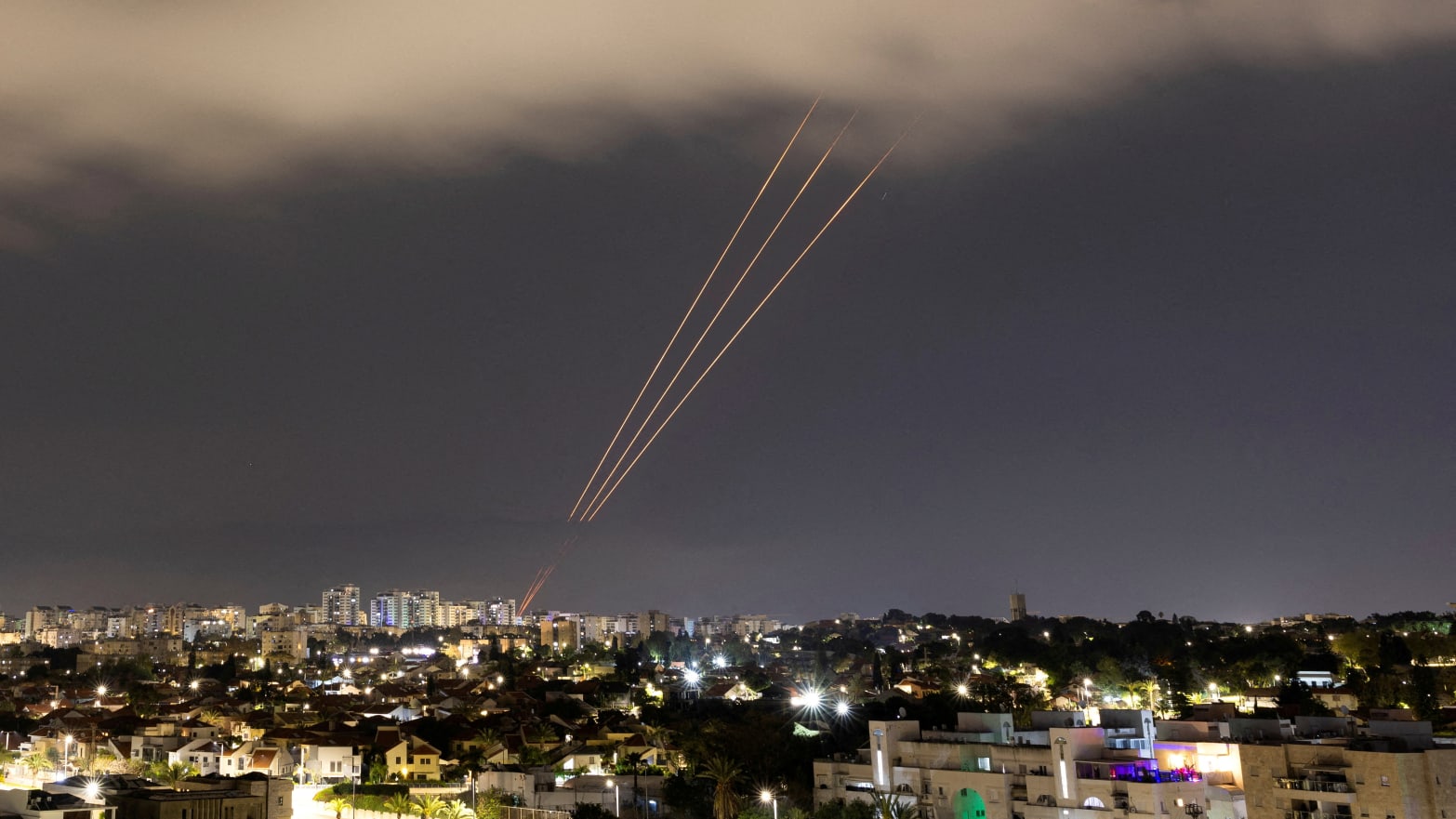Israel launched an attack on Iran early Friday morning local time—the first retaliatory strike following an Iranian missile and drone attack on Israeli soil last weekend, U.S. officials told CBS and ABC News.
It’s unclear how many—if any—drones reached targets in Iran and how effective they may have been on impact.
The country’s anti-missile defenses were activated early Friday near the city of Isfahan, according to the Iranian state-run IRNA news agency. Isfahan is the country’s third-most populous city and the site of a nuclear technology center and one of its largest military bases.
CNN reported that two U.S. officials said Israel was not targeting nuclear facilities or civilian targets.
The Israeli Defense Forces did not immediately comment on the attack. An aide to Israeli Prime Minister Benjamin Netanyahu declined to comment to Axios.
Iran announced that all commercial flights in Tehran, Isfahan, Shiraz, and much of the west-central region of the country had been grounded, according to the AP. Separate footage appeared to show Tehran’s airport announcing over an intercom that all flights were canceled.
Iranian state TV reported there was a “loud sound” heard in Iran’s Isfahan province. The Iranian state-affiliated media outlets Tasnim and Fars reported that the nuclear facility in Isfahan was “completely secure.”
The Iranian Revolutionary Guard Corps also released footage that appeared to show the country’s air defenses intercepting drones.
State media in Iran have played down the attack, saying the strikes were limited to drones that failed to penetrate its air defense systems. An Iranian official told Reuters that explosion-like sounds heard in Isfahan were a result of the activation of air defense systems, and that no missiles had struck the city.
“What is becoming clear at this point is that the Iranians are downplaying this significantly,” Trita Parsi, the co-founder and executive vice president of the Quincy Institute for Responsible Statecraft, said in a late-night interview on CNN.
“If that is a way for the Iranians to essentially wave this off, as if nothing happened, and stop the escalatory cycle, then I think most of the countries in the region—and the world—will welcome that.”
Ian Bremmer, a political scientist and founder of the political risk research and consulting firm Eurasia Group, went as far as to call the Israeli strike “deescalatory” in a post on X shortly after news of the action broke.
“Israeli strike against Iran is deescalatory,” he wrote. “Had to take some sort of action. Restrained compared to attacks on Damascus that precipitated the crisis.”
The Israeli military said on Monday that it planned to retaliate against Iran, but provided no details on what that attack would entail. Reports suggested it could attack Iranian facilities or include cyberattacks in order to avoid civilian casualties. Bloomberg News reported that Israeli officials alerted the U.S. on Thursday morning that it planned to strike Iran in the next 24 to 48 hours.
The attack comes two weeks after Tehran vowed to punish Israel for the assassination of a top commander at an Iranian mission on April 1. Iran then launched a barrage of over 300 munitions against Israel on April 13, the majority of which were thwarted by Israeli and American antimissile systems.
The U.S. had urged Israel not to respond to Iran’s attack. CNN reported Thursday the White House did not “green light” an Israeli response when approached about it.
Earlier Thursday, Iran said it was considering a change to its nuclear “doctrine,” threatening a potential break from the publicly stated “peaceful” objectives of its nuclear program.
“The threats of the Zionist regime [Israel] against Iran's nuclear facilities make it possible to review our nuclear doctrine and deviate from our previous considerations,” said Ahmad Haghtalab, a top Iranian Revolutionary Guards commander, according to Tasnim. “If the Zionist regime wants to take action against our nuclear centers and facilities, we will surely and categorically reciprocate with advanced missiles against their own nuclear sites,” Haghtalab said, adding the era of “hit and run" is over.
The Israeli attack comes as top U.S. officials and other allies have been seeking to temper tensions behind the scenes, urging Israel against escalatory responses.
Iranian officials have previously said that any Israeli retaliation against the state would lead to a “severe response” from Tehran, but there was no indication of an immediate response by Iran after the latest strike.
“If the Zionist regime [Israel] or its supporters demonstrate reckless behaviour, they will receive a decisive and much stronger response,” Iran’s President Ebrahim Raisi said in a previous statement.


